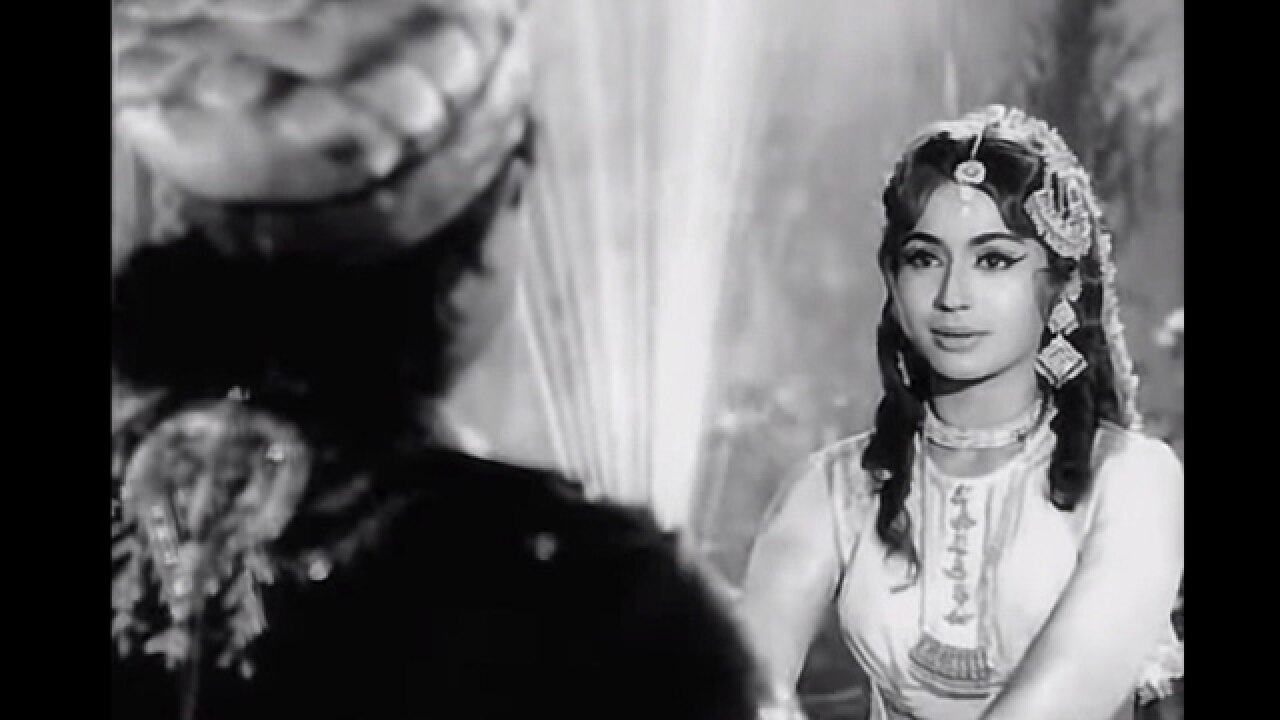
Very little is known about music director Iqbal Qureshi. He composed music for 25 Hindi films from 1958 to 1986. Despite a limited discography for small banner films, his music won him a niche fan following. It should be noted that there was another music director named Iqbal who composed for films during the same period as Iqbal Qureshi.
In this post, I list five Iqbal Qureshi songs that make it worthwhile for music lovers to look beyond the big name music directors and explore the work of lesser known composers.
Panchayat (1958) was Iqbal Qureshi’s debut film and he scored some winners right away, including what is one of the best duets ever by Lata Mangeskar and Geeta Dutt ‘Ta Thaiya Karke Aana’. Energetic beats and a catchy tune come together wonderfully in this song, with a touch of folk and classical. One of the striking features of the song was the superb use of non-mainstream instruments like been (a wind instrument) and khartal /castanet (a percussion instrument). I did feel that Geet Dutt was underutilised in the song and, therefore, appeared to play second fiddle to Lata Mangeshkar.
Iqbal Qureshi’s ‘Main Apne Aap Se Ghabra Gaya Hoon’ is the desperate call of a deeply troubled soul. As good as the composition is, this stunner of a song wouldn’t have been possible without Rafi’s powerful rendition and Rajendra Krishan’s moving lyrics.
‘Mujhe Raat Din Yeh Khayal Hai’ is among Mukesh’s best songs and could easily be mistaken for a Shankar–Jaikishan song from the 1950s. Had it featured in a Raj Kapoor film, I suspect it would have been a big hit. However, that was not the case. It featured in a small banner film on Sudhir, best remembered for his role in Satte Pe Satta (1982), and the song never got as many plays as it deserved. Iqbal Qureshi’s lovely composition is ably complemented by the pathos in Mukesh’s voice and Hasrat Haipuri’s lyrics.
Ye Dil Kisko Doon has a number of songs worth listening to. Most of them are the kind one would expect in a Shashi Kapoor film— light and playful. One of them, however, is a richly arranged mujra song— an amalgam of light classical and folk. ‘Hamen Dum Daike’ makes great use of sarangi and sitar, making the interludes more than fillers and as engaging as the vocals. The vocals, featuring Mubarak Begum and Asha Bhosle, are very interesting. As good as Asha Bhosle is, she’s completely overshadowed by Mubarak Begum. Iqbal Qureshi made the right choice because a song like this does indeed benefit by the weight and character of Mubarak Begum’s voice.
Cha Cha Cha remains Iqbal Qureshi’s most loved film score. Featuring the lovely Helen in a lead role, the film was actor Chandrashekhar’s pet project and the only film he produced, directed and wrote. Cha Cha Cha is a solid album overall that has two outstanding songs— ‘Ek Chameli Ke Mandve Tale’, written by Makhdoom Mohiuddin and ‘Subah Na Aayi Shaam Na Aayi’, written by the debutant Neeraj. I heard Makhdoom Mohiuddin and ‘Subah Na Aayi Shaam Na Aayi’, written by the debutant Neeraj. I heard Jagjit Singh’s version of ‘Ek Chameli Ke Mandve Tale’ for the TV serial Kahkashan first and was taken back when I came across Iqbal Qureshi’s radically different interpretation. Over time, it grew on me to the point that I think I like Iqbal Qureshi’s version a tad more, although Jagjit Singh’s version is truer to Makhdoom’s lyrics.